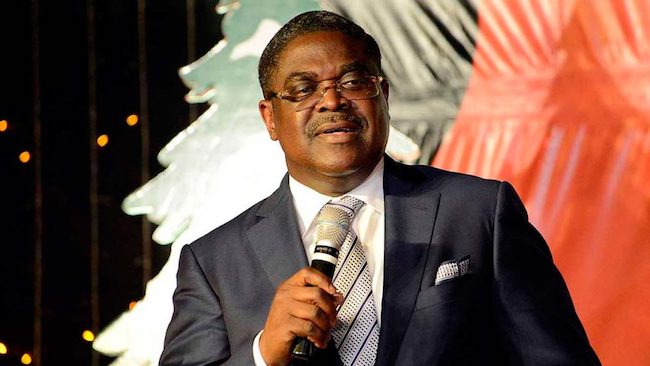The departure of Pastor Idowu Iluyomade from the Redeemed Christian Church of God (RCCG) City of David Parish has sparked controversy and conflicting narratives. Quincy Ayodele, an elder within the parish, vehemently denies claims that Iluyomade rebelled against the church before establishing his own ministry. She maintains that Iluyomade’s exit was a consequence of a series of misunderstandings and miscommunications, beginning with a three-month suspension imposed by the church leadership. Ayodele, who accompanied Iluyomade to the RCCG headquarters throughout his suspension period, asserts their expectation was his reinstatement to City of David or another parish. Instead, they were shocked to receive a letter barring Iluyomade from the church premises entirely.
This unexpected turn of events has fueled questions and concerns, particularly given the reportedly close relationship between Iluyomade and Pastor Enoch Adeboye, the General Overseer of RCCG. Ayodele emphasizes the historical bond between the two, portraying Iluyomade as a devoted supporter of Adeboye and the church. The abrupt severing of ties seems inexplicable to her, and she openly expresses her bewilderment at the church’s actions. The lack of response from Adeboye to appeals from concerned elders further deepened the sense of confusion and frustration surrounding the situation. Following the ban from City of David, the Iluyomades sought refuge at Kings Court, another RCCG parish pioneered by Iluyomade, but were subsequently asked to leave. This compounded their feeling of rejection and isolation within the church they had served for many years.
Adding to the complexities of the situation is the controversy surrounding Siju Iluyomade’s 60th birthday celebration, which took place shortly after the tragic death of Herbert Wigwe, a prominent member of the City of David Parish. The timing of the extravagant celebration sparked public backlash and contributed to Iluyomade’s suspension. Ayodele, who was out of the country at the time, expresses her surprise at the negative reaction to the party, emphasizing the collective grief felt by the parish over Wigwe’s passing. She also refutes claims that Wigwe single-handedly funded the construction of the Trinity Towers at City of David, attributing it to the collective contributions of parish members. The confluence of these events, the suspension, the banishment, and the birthday party controversy, created a perfect storm that ultimately led to Iluyomade’s departure from RCCG.
Ayodele paints a picture of a dedicated servant whose contributions to the church were substantial, ranging from building free schools and feeding the hungry to generously using church funds for community outreach. She questions the rationale behind the church’s actions, particularly given Iluyomade’s consistent financial commitment, even amidst personal financial obligations. According to Ayodele, numerous influential individuals intervened on Iluyomade’s behalf, pleading with Adeboye for reconsideration, but their efforts proved futile. The repeated rejections, coupled with the lack of explanation from the church leadership, left Iluyomade feeling deeply hurt and betrayed. The silence and perceived abandonment by those they had helped further exacerbated their sense of isolation.
Ayodele’s account challenges the narrative of a rebellious pastor intentionally defying church authority. She depicts Iluyomade as a loyal member who was unjustly treated and ultimately forced to establish his own ministry, not out of defiance but out of necessity. The apparent breakdown in communication and understanding between Iluyomade and the RCCG leadership, combined with the external pressures of public scrutiny and internal appeals, culminated in a painful separation. Ayodele expresses her continued hope for reconciliation and emphasizes Iluyomade’s lack of experience in starting a church, suggesting that his decision was not premeditated.
The emotional toll of these events is evident in Ayodele’s account. She describes Iluyomade weeping over the ban from City of David and expresses her own distress at Adeboye’s remarks seemingly directed at those who left the church. Her ongoing efforts to mediate and facilitate reconciliation underscore her belief that the situation could have been resolved differently. The story, as presented by Ayodele, raises questions about church governance, conflict resolution, and the delicate balance between personal relationships and institutional decisions. It also highlights the profound impact of such disputes on individuals, families, and the broader religious community.


